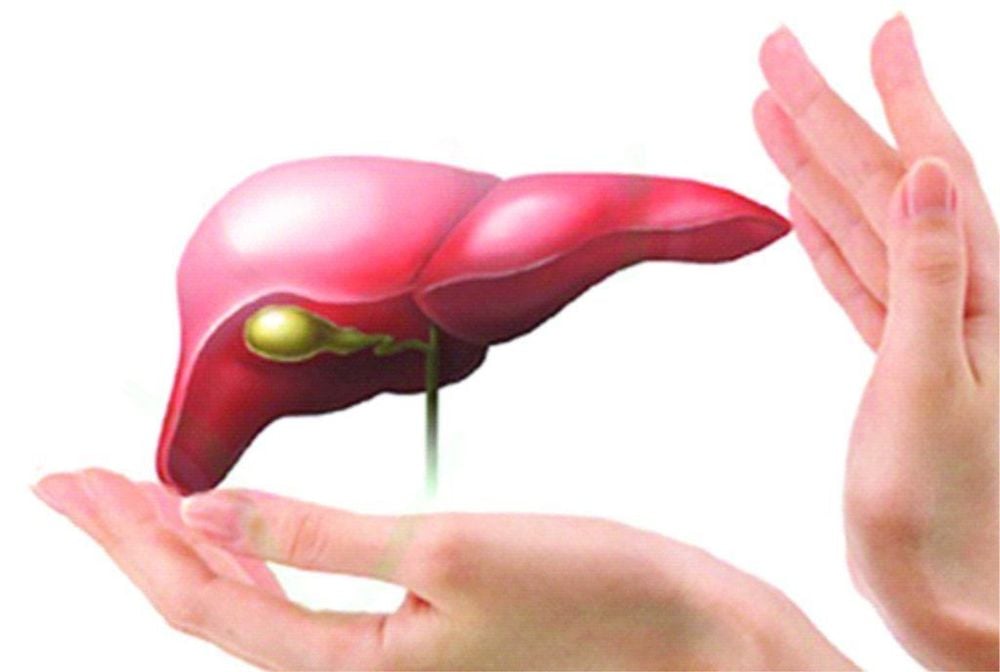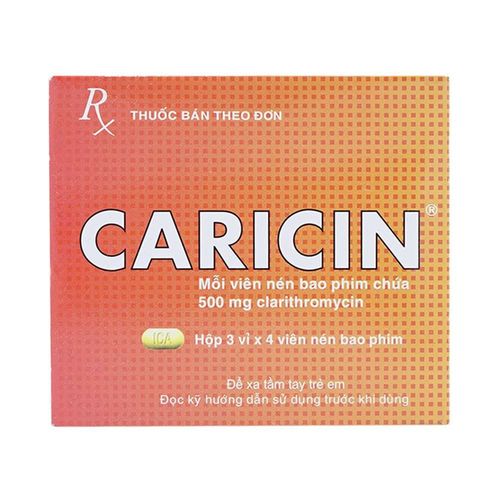This is an automatically translated article.
Antibiotic azithromycin is a new antibiotic with a broad spectrum of action of the macrolide group. The drug has strong bactericidal ability and long duration of action. However, when using the antibiotic azithromycin, some unwanted effects may occur.
1. What effect does the antibiotic azithromycin have?
Azithromycin is a new broad-spectrum antibiotic belonging to the macrolide group. The drug has a strong antibacterial effect by binding to the ribosomes of pathogenic bacteria, thereby preventing their protein synthesis.This antibiotic can be effective against many types of pathogenic bacteria: Gram-positive bacteria such as Streptococcus, Pneumococcus, Staphylococcus aureus ... Some gram-negative bacteria such as Haemophilus influenzae, parainfluenzae, and ducreyi, Moraxella catarrhalis. ..
Some infectious diseases caused by bacteria sensitive to this antibiotic are often used to treat such as: pharyngitis, rhinosinusitis, tonsillitis, pneumonia, bronchitis, skin infections such as acne boils, muscle abscesses, otitis media, sexually transmitted diseases ... However, this antibiotic also has cross-resistance with erythromycin, which is another antibiotic of the macrolide group. Therefore, careful consideration should be given when using azithromycin to avoid the spread of macrolide-resistant bacteria in our country.
2. Possible side effects when taking the antibiotic azithromycin
Most antibiotics can cause many unwanted effects, but macrolide antibiotics are said to be quite benign and have few unwanted side effects. Accordingly, to ensure safety, users should pay attention to some side effects as follows:
Common side effects: Digestive disorders such as nausea, vomiting, diarrhea, abdominal pain. Uncommon side effects: Headache, chest pain, fatigue, trouble sleeping, somnolence, severe dizziness, fainting, arrhythmia, heart palpitations, digestive disorders. In addition, on the skin can be red rash, blistering or peeling itchy skin... In addition to the common and uncommon side effects, there are also rare side effects such as:
Anaphylaxis: Need to exploit A careful history if the patient is allergic to the same group of antibiotics should not be used. Symptoms can range from mild to severe such as urticaria, abdominal pain, shortness of breath, tachycardia, and low blood pressure, which, if not handled promptly, can lead to death. Increased liver enzymes: Manifested as nausea, abdominal pain, itching, loss of appetite, dark urine, silver stools, yellow skin or eyes. Temporary neutropenia. Angioedema.

Tăng men gan có thể xảy ra do tác dụng phụ của thuốc
3. What should be noted when using azithromycin antibiotic?
In order to avoid the phenomenon of using antibiotics incorrectly, causing many unwanted effects and increasing the rate of drug resistance, people using azithromycin should follow the doctor's instructions. Accordingly, this antibiotic can be used when hungry or full, but the time of use should be at the same time of day to ensure a stable amount of medicine and increase the effect of the drug. People who are allergic to azithromycin or have ever been allergic to similar drugs in the macrolide group of antibiotics such as erythromycin, clarithromycin, telithromycin or troleandomycin should not take this medicine. In addition, people who have ever had liver problems, kidney disease, severe myasthenia gravis, cardiac arrhythmia should consult a doctor before use, need to weigh the benefits and risks of complications.For pregnant and lactating women, there are currently no adequate risk studies on this subject, so if you use it, you should consult a specialist. When using the drug, if you see serious side effects, the patient should stop taking the medicine immediately and notify the doctor. Serious side effects such as severe diarrhea, bloody stools; headache, chest pain, severe dizziness; fainting, heart palpitations; symptoms of elevated liver enzymes nausea, itching, liver pain, loss of appetite, dark urine, discolored stools, yellowing of the skin or eyes.
If there is a side effect causing diarrhea, the patient should not use anti-diarrheal drugs. If you miss a dose, take it as soon as you remember. If the time of remembering is about 30 minutes after the next dose, take the next dose, skipping the missed dose. Do not take 2 doses at the same time because it will cause an overdose.
Also, if you are taking azithromycin do not take antacids containing aluminum or magnesium within 2 hours before and after taking azithromycin. While taking the drug, the patient should avoid exposure to sunlight. Because azithromycin can make people taking the drug more susceptible to sunburn due to skin sensitivity to sunlight.
Besides the therapeutic effect, the antibiotic azithromycin also leaves certain side effects. Accordingly, in order to minimize unwanted side effects, patients should choose a reputable medical clinic and receive advice on how to use antibiotics effectively.
Vinmec International General Hospital is the address for examination, treatment and prevention of diseases. When performing the examination process at Vinmec, customers will be welcomed and used modern facilities and machinery along with perfect medical services under the guidance and advice of doctors. Good doctors, well-trained both at home and abroad.
In case it is necessary to use antibiotics to treat diseases, doctors at Vinmec will provide a treatment regimen, and advise and guide patients to use drugs effectively, avoiding abuse, Indiscriminate use of antibiotics causes undesirable side effects such as antibiotic resistance.
Please dial HOTLINE for more information or register for an appointment HERE. Download MyVinmec app to make appointments faster and to manage your bookings easily.













